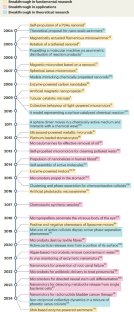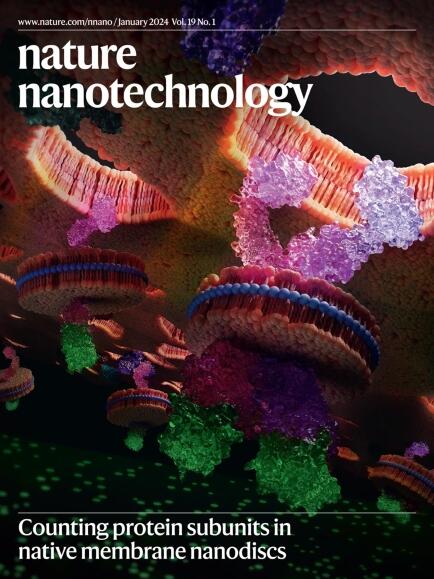A roadmap for next-generation nanomotors
IF 34.9
1区 材料科学
Q1 MATERIALS SCIENCE, MULTIDISCIPLINARY
引用次数: 0
Abstract
Since their discovery in 2004, there has been remarkable progress in research on nanomotors, from the elucidation of different propulsion mechanisms to the study of their collective behaviour, culminating in investigations into their applications in biomedicine and environmental remediation. This Perspective reviews this evolution in nanomotor research and discusses the key challenges ahead, including the need for developing advanced characterization techniques, precise motion control, materials innovation, theory and modelling, and translationally feasible in vivo biomedical applications. These challenges highlight the current limitations of synthetic nanomotors and point to exciting future opportunities to revolutionize theranostics and create ‘living’ hybrid systems. We introduce the concept of ‘systems materials’ to encompass interacting functional materials across length scales from molecular to macro. Thus, this Perspective aims to inspire future generations of researchers to advance both fundamental understanding and practical breakthroughs, thereby engineering a paradigm shift in nanomotor research. This Perspective traces the evolution of fundamental and applied aspects of nanomotor research over the past 20 years, highlights current challenges and proposes design principles for developing the next generation of intelligent nanomotors.


下一代纳米马达的路线图
自2004年发现纳米马达以来,纳米马达的研究取得了显著进展,从阐明不同的推进机制到研究它们的集体行为,最终研究了它们在生物医学和环境修复中的应用。本展望回顾了纳米运动研究的发展,并讨论了未来的关键挑战,包括发展先进表征技术,精确运动控制,材料创新,理论和建模,以及在体内生物医学应用的可行性。这些挑战突出了合成纳米马达目前的局限性,并指出了令人兴奋的未来机会,以彻底改变治疗学和创造“活的”混合系统。我们引入了“系统材料”的概念,以涵盖从分子到宏观的长度尺度的相互作用功能材料。因此,本展望旨在激励未来几代研究人员推进基础理解和实际突破,从而在纳米电机研究中实现范式转变。
本文章由计算机程序翻译,如有差异,请以英文原文为准。
求助全文
约1分钟内获得全文
求助全文
来源期刊

Nature nanotechnology
工程技术-材料科学:综合
CiteScore
59.70
自引率
0.80%
发文量
196
审稿时长
4-8 weeks
期刊介绍:
Nature Nanotechnology is a prestigious journal that publishes high-quality papers in various areas of nanoscience and nanotechnology. The journal focuses on the design, characterization, and production of structures, devices, and systems that manipulate and control materials at atomic, molecular, and macromolecular scales. It encompasses both bottom-up and top-down approaches, as well as their combinations.
Furthermore, Nature Nanotechnology fosters the exchange of ideas among researchers from diverse disciplines such as chemistry, physics, material science, biomedical research, engineering, and more. It promotes collaboration at the forefront of this multidisciplinary field. The journal covers a wide range of topics, from fundamental research in physics, chemistry, and biology, including computational work and simulations, to the development of innovative devices and technologies for various industrial sectors such as information technology, medicine, manufacturing, high-performance materials, energy, and environmental technologies. It includes coverage of organic, inorganic, and hybrid materials.
 求助内容:
求助内容: 应助结果提醒方式:
应助结果提醒方式:


